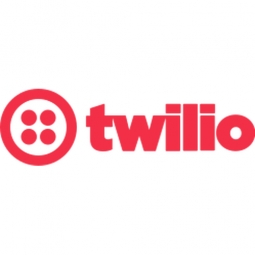Download PDF
PagerDuty's Scalable IT Alert Notification System Powered by Twilio
Technology Category
- Infrastructure as a Service (IaaS) - Cloud Databases
- Infrastructure as a Service (IaaS) - Cloud Middleware & Microservices
Applicable Industries
- Cement
- Telecommunications
Applicable Functions
- Quality Assurance
Use Cases
- Leakage & Flood Monitoring
- Speech Recognition
Services
- System Integration
- Testing & Certification
The Challenge
PagerDuty, an incident management platform for IT operations and devops teams, was faced with the challenge of making IT alerts reliable and simple to use. Traditional alerting systems were either complex, capital-intensive enterprise projects or unreliable, jury-rigged hacks that were as likely to fail themselves as the systems they monitored. The founders of PagerDuty, Alex Solomon, Andrew Miklas, and Baskar Puvanasathan, aimed to create an alerting system that was not only highly reliable but also simple and accessible. They envisioned a cloud-based service that could aggregate incidents from multiple IT monitoring systems.
About The Customer
Founded in 2009 and headquartered in San Francisco, PagerDuty provides an incident management platform for IT operations and devops teams. The company was founded by Alex Solomon, Andrew Miklas, and Baskar Puvanasathan with the aim of making IT alerts reliable and simple to use. PagerDuty's customers include famous tech brands like Adobe, eBay, Etsy, and Square. The company has grown significantly over the years, raising nearly $11 million in funding in a round led by top-tier VC firm Andreessen Horowitz.
The Solution
PagerDuty selected Twilio as its primary communications provider to build a scalable, easy-to-use, and reliable IT alert notification system. Twilio's rock-solid telecommunications service was crucial to PagerDuty's success. Twilio offered the flexibility of escalating from SMS to voice notifications, and a straightforward API that eased the integration of PagerDuty with monitoring services like Nagios, Pingdom, Splunk, and Zenoss. With PagerDuty, users have just one place to set up sophisticated alerting rules with multiple levels of coverage. If a primary contact doesn't respond, the alert is escalated to a secondary contact. Users can respond easily by simply replying to an SMS notification or selecting an option from a voice menu. Users can also immediately escalate an alert directly from their phones via a cross-platform mobile site or native iOS and Android apps.
Operational Impact
Quantitative Benefit
Related Case Studies.

Case Study
System 800xA at Indian Cement Plants
Chettinad Cement recognized that further efficiencies could be achieved in its cement manufacturing process. It looked to investing in comprehensive operational and control technologies to manage and derive productivity and energy efficiency gains from the assets on Line 2, their second plant in India.

Case Study
Vodafone Hosted On AWS
Vodafone found that traffic for the applications peak during the four-month period when the international cricket season is at its height in Australia. During the 2011/2012 cricket season, 700,000 consumers downloaded the Cricket Live Australia application. Vodafone needed to be able to meet customer demand, but didn’t want to invest in additional resources that would be underutilized during cricket’s off-season.

Case Study
SKT, Construction of Smart Office Environment
SK T-Tower is the headquarters of SK Telecom. Inside the building, different types of mobile devices, such as laptops, smartphones and tablets, are in use, and with the increase in WLAN traffic and the use of quality multimedia data, the volume of wireless data sees an explosive growth. Users want limitless Internet access in various places in addition to designated areas.








